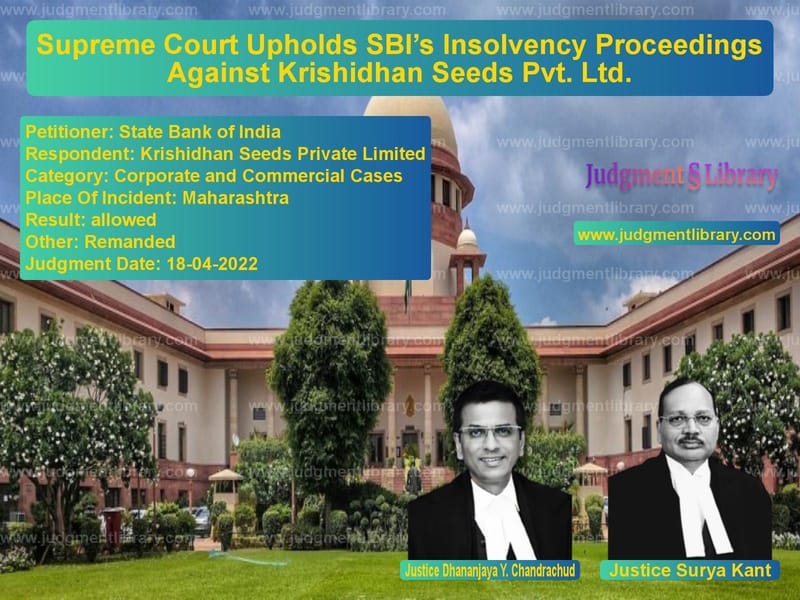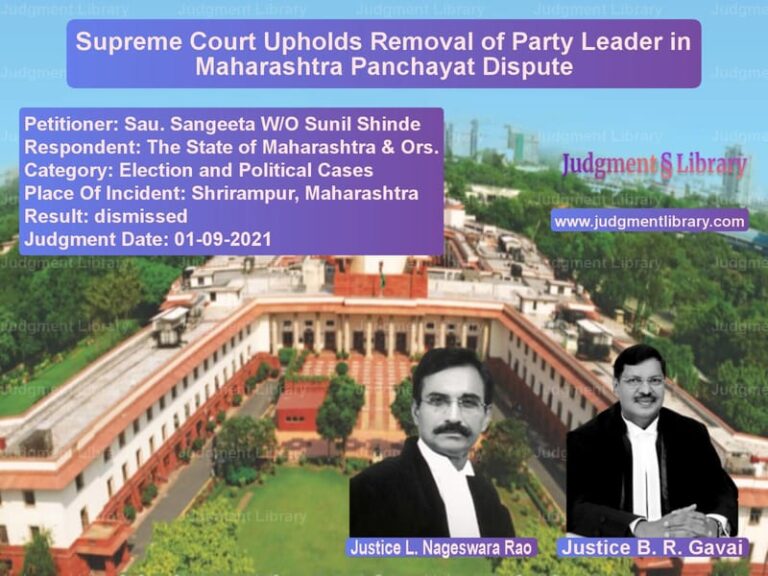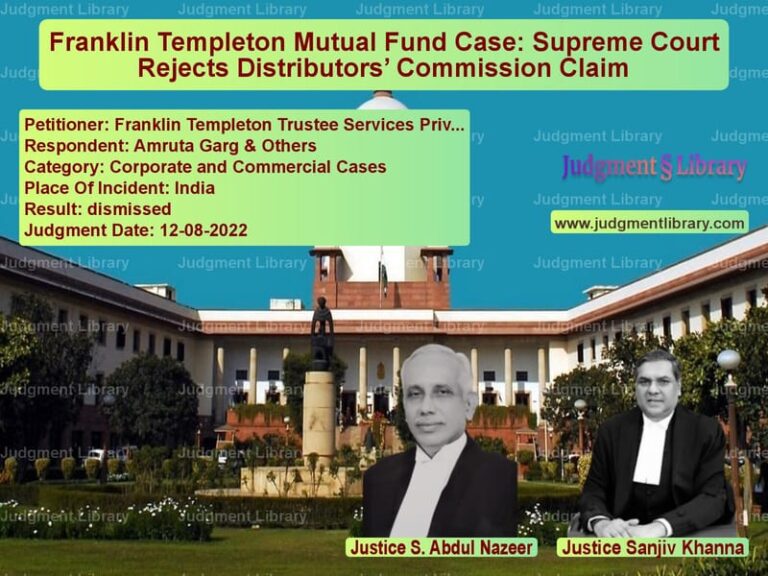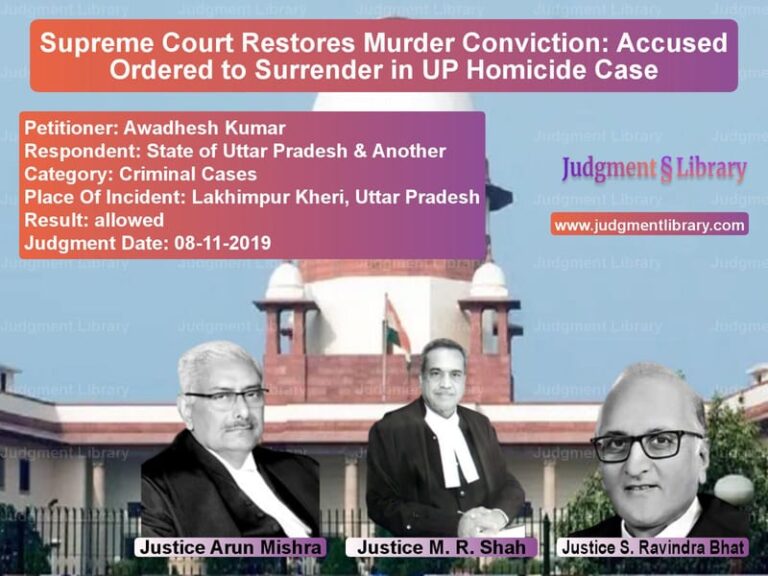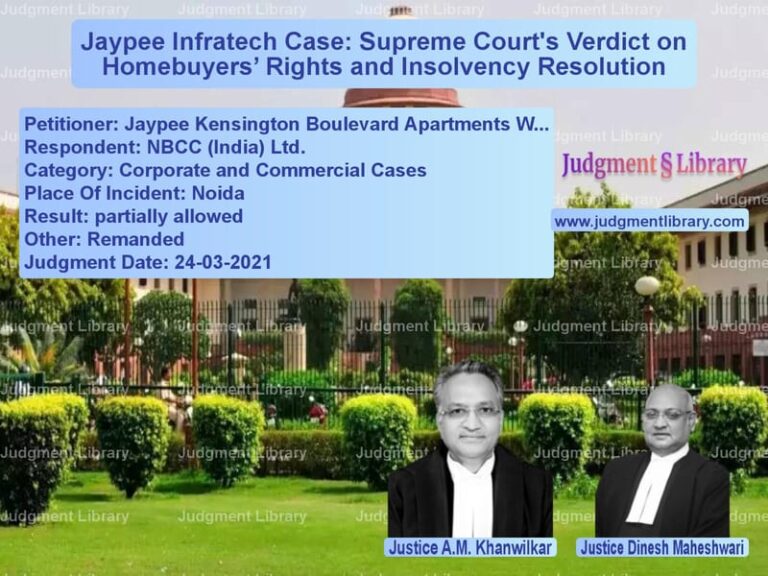Supreme Court Upholds SBI’s Insolvency Proceedings Against Krishidhan Seeds Pvt. Ltd.
The Supreme Court of India recently delivered a significant judgment in State Bank of India v. Krishidhan Seeds Private Limited, a case involving corporate insolvency under the Insolvency and Bankruptcy Code, 2016 (IBC). The ruling overturned the decisions of the National Company Law Tribunal (NCLT) and the National Company Law Appellate Tribunal (NCLAT), which had rejected SBI’s application to initiate insolvency proceedings against Krishidhan Seeds Pvt. Ltd. on the ground that it was barred by limitation.
The judgment clarifies the interpretation of Section 18 of the Limitation Act, 1963, which allows for the extension of the limitation period if the debtor acknowledges its liability. This ruling has major implications for financial creditors and the recovery of bad loans under the IBC.
Background of the Case
Krishidhan Seeds Pvt. Ltd. (the respondent) had availed credit facilities from the appellant, State Bank of India (SBI), starting from November 30, 2006. By June 24, 2013, the outstanding credit reached ₹102.4 crores. Due to non-payment, the account was classified as a Non-Performing Asset (NPA) on June 10, 2014.
Despite efforts by SBI to recover the debt through the Securitisation and Reconstruction of Financial Assets and Enforcement of Security Interest Act, 2002 (SARFAESI Act) and the Recovery of Debts Due to Banks and Financial Institutions Act, 1993, the debt remained unpaid. In 2016, Krishidhan Seeds Pvt. Ltd. proposed a One-Time Settlement (OTS) of ₹61 crores, which it later unilaterally reduced to ₹40.6 crores in 2017. SBI rejected this offer and proceeded to file an application under Section 7 of the IBC on September 19, 2018, seeking to initiate insolvency proceedings against Krishidhan Seeds Pvt. Ltd. for a total outstanding amount of ₹189 crores.
Proceedings Before NCLT and NCLAT
NCLT Decision
- The NCLT dismissed SBI’s application, ruling that it was barred by limitation since it was filed more than four years after the default date of June 10, 2014.
- The tribunal held that the acknowledgment of debt in the balance sheet of Krishidhan Seeds Pvt. Ltd. was not sufficient to extend the limitation period.
NCLAT Decision
- SBI challenged the NCLT’s order before the NCLAT, which upheld the decision of the lower tribunal.
- The appellate tribunal ruled that the default date could not be shifted once it occurred and dismissed SBI’s reliance on Section 18 of the Limitation Act.
- The NCLAT relied on the precedent set in V. Padmakumar v. Stressed Assets Stabilisation Fund, which held that balance sheet entries do not constitute acknowledgment of debt for the purpose of extending the limitation period.
Supreme Court’s Judgment
Key Observations
- The Supreme Court noted that the NCLT and NCLAT had erroneously relied on V. Padmakumar, which was later overruled by a three-judge bench in Asset Reconstruction Company (India) Ltd. v. Bishal Jaiswal.
- The Court reaffirmed that entries in balance sheets constitute an acknowledgment of debt under Section 18 of the Limitation Act and can extend the limitation period.
- The Court emphasized that the IBC does not solely depend on the date of NPA classification but also considers subsequent acknowledgments of liability.
Final Decision
The Supreme Court set aside the orders of the NCLT and NCLAT and reinstated SBI’s application for CIRP. The Court directed the NCLT to expedite the resolution process and adjudicate the matter afresh within three months.
Implications of the Judgment
For Financial Creditors
- The judgment strengthens the ability of banks and financial institutions to recover bad loans under the IBC.
- It clarifies that balance sheet acknowledgments can extend limitation periods, preventing defaulters from escaping liability through procedural technicalities.
For Borrowers
- The ruling reinforces that merely classifying a loan as an NPA does not absolve debt obligations.
- Debtors cannot use procedural defenses to evade repayment obligations under insolvency law.
For Future IBC Cases
- The decision aligns with previous judgments confirming that the Limitation Act applies to IBC proceedings.
- It strengthens the framework for corporate insolvency resolution and protects the rights of creditors.
Conclusion
The Supreme Court’s ruling in State Bank of India v. Krishidhan Seeds Private Limited is a landmark decision in insolvency law. By upholding the rights of financial creditors, the judgment ensures that debt recovery processes under the IBC remain effective and aligned with commercial realities. This ruling will have far-reaching implications for corporate debt resolution in India.
Petitioner Name: State Bank of India.Respondent Name: Krishidhan Seeds Private Limited.Judgment By: Justice Dhananjaya Y. Chandrachud, Justice Surya Kant.Place Of Incident: Maharashtra.Judgment Date: 18-04-2022.
Don’t miss out on the full details! Download the complete judgment in PDF format below and gain valuable insights instantly!
Download Judgment: state-bank-of-india-vs-krishidhan-seeds-pri-supreme-court-of-india-judgment-dated-18-04-2022.pdf
Directly Download Judgment: Directly download this Judgment
See all petitions in Bankruptcy and Insolvency
See all petitions in Corporate Compliance
See all petitions in Company Law
See all petitions in Judgment by Dhananjaya Y Chandrachud
See all petitions in Judgment by Surya Kant
See all petitions in allowed
See all petitions in Remanded
See all petitions in supreme court of India judgments April 2022
See all petitions in 2022 judgments
See all posts in Corporate and Commercial Cases Category
See all allowed petitions in Corporate and Commercial Cases Category
See all Dismissed petitions in Corporate and Commercial Cases Category
See all partially allowed petitions in Corporate and Commercial Cases Category

